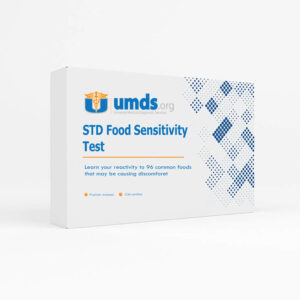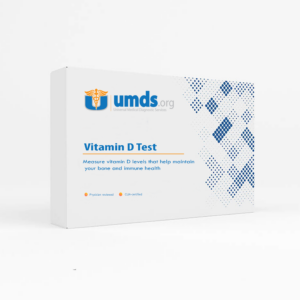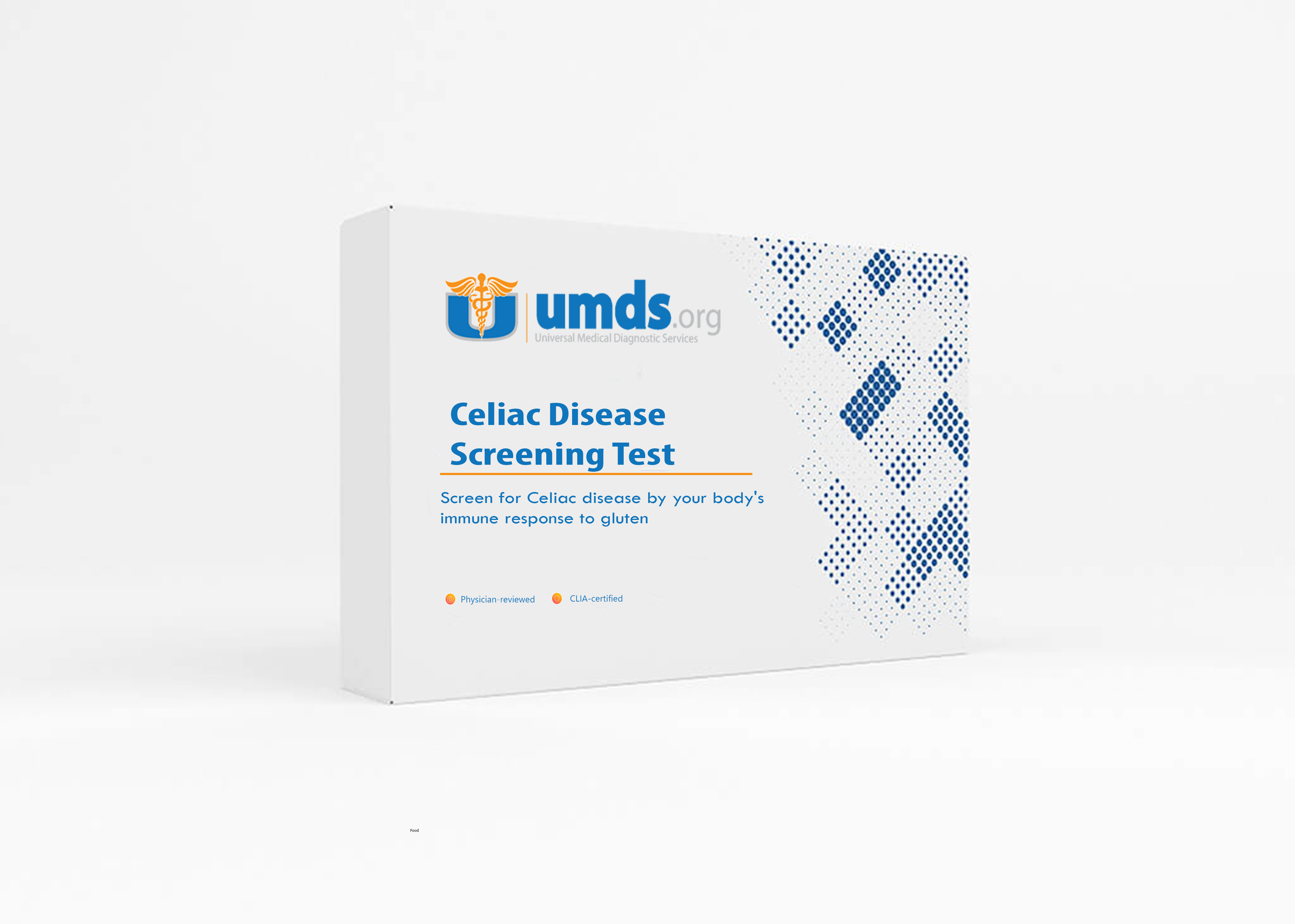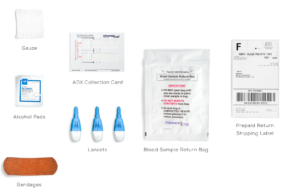Celiac Disease Screening Test
$119.00
Our Celiac Disease Screening Test detects specific antibodies in your blood, helping identify celiac disease.
- 4.83
112 Reviews
Our at-home test screens for three key antibodies linked to celiac disease. If your results indicate a potential risk of celiac disease, a healthcare professional from our network will contact you to discuss next steps.
- Measures 3 key antibodies that aid in the diagnosis of celiac disease
- Sample using a finger prick
Celiac disease is an autoimmune reaction triggered by gluten consumption. When people with celiac disease eat gluten, their immune system produces specific antibodies, including tissue transglutaminase IgA (tTG-IgA) and deamidated gliadin peptide immunoglobulin G (DGP-IgG), which can damage the small intestine.
To accurately detect these antibodies, we measure both tTG-IgA and total IgA levels. Total IgA plays a crucial role in immune function, and low levels can interfere with tTG-IgA results. If total IgA is low, we also test for DGP-IgG to ensure comprehensive evaluation.
Celiac disease can cause a wide range of uncomfortable symptoms. These can vary greatly from person to person. If you experience digestive or non-digestive issues after consuming gluten-containing foods (wheat, barley, rye, or triticale), consider this test.
Common digestive symptoms include: abdominal pain, bloating, constipation, diarrhea, excessive gas, nausea, vomiting, and unexplained weight loss.
Non-digestive symptoms can affect various parts of the body and may include: anemia, bone or joint pain, depression, anxiety, fatigue, headaches, migraines, severe skin rashes, infertility, irregular menstrual periods, osteoporosis, nerve damage, and seizures.
Convenient at-home lab testing. Your kit includes everything needed, with pre-paid shipping for hassle-free sample return. Easy-to-follow instructions and a helpful video guide the process. Our dedicated support team is ready to assist you. Access your results digitally or in print, and benefit from informative educational sessions led by healthcare professionals.
HOW IT WORKS
01:
Get Started with Your Test
When your test arrives, visit UM Diagnostics and scan the QR code on the box to easily enter your test ID.

02:
Test conveniently at home
When you’re ready, follow the kit’s instructions to collect your sample and mail it using the prepaid shipping label.

03:
Receive results within 24 hours
Your physician-reviewed results will be available in your account within a few days.

04:
Wellness is a team effort
We’ll provide personalized lifestyle insights and guidance based on your results to help you make healthier choices.

FAQ'S
FREQUENTLY ASKED QUESTIONS
Celiac disease is an autoimmune disorder that affects the digestive system. When people with celiac disease consume gluten, a protein found in wheat, rye, barley, and triticale, their immune system mistakenly attacks the small intestine. This damage hinders the proper absorption of nutrients from food.
This test may be beneficial if you experience digestive discomfort after consuming gluten-containing foods such as wheat, barley, rye, or triticale. Common symptoms include abdominal pain, bloating, constipation, diarrhea, excessive gas, nausea, vomiting, and unexplained weight loss.
This test may not be suitable for you if:
You have a confirmed diagnosis of celiac disease.
You haven’t consumed gluten in the past three months. If you’re considering reintroducing gluten for testing purposes, it’s essential to consult your healthcare provider first.
Understanding Your Celiac Disease Screening Test
Our celiac disease screening test follows a standardized medical approach. It involves checking for specific antibodies in your blood that may indicate celiac disease.
The primary test measures tTg-IgA and total IgA. tTg-IgA is the most reliable indicator of celiac disease in people with normal IgA levels.
If your tTg-IgA is negative and your total IgA is low or cannot be determined, we will also test for DGP-IgG. This is because individuals with low IgA levels may also have celiac disease but test negative for tTg-IgA. DGP-IgG helps identify these cases.
By conducting these tests, we can effectively screen for celiac disease and rule out potential factors affecting the results, such as IgA deficiency.
Your test results will identify specific antibodies associated with celiac disease. These include total immunoglobulin A (IgA), tissue transglutaminase immunoglobulin A (tTG-IgA), and, in certain cases, deamidated gliadin peptide immunoglobulin G (DGP-IgG). When someone with celiac disease consumes gluten, their immune system responds by producing these antibodies, leading to intestinal inflammation and damage. The presence of these antibodies, combined with related symptoms, may indicate celiac disease. However, a definitive diagnosis requires further testing and evaluation by a healthcare professional.
A member of our patient care team will contact you if your results indicate an indeterminate or increased risk of celiac disease. UM Diagnostics can provide information about these results and help prepare you for a productive conversation with your healthcare provider. It’s essential to share your results and any symptoms you’re experiencing with your healthcare provider. They can review your results in conjunction with your medical history and symptoms, and order further celiac disease testing if necessary to determine if celiac disease is affecting your health.
Related products
-

STD Food Sensitivity Test
$199.00 -

Metabolism Test
$99.00 -

Vitamin D Test
$49.00
Disclaimer: These statements have not been evaluated by the Food and Drug Administration. This product is not intended to diagnose, treat, cure, or prevent any disease At Um Diagnostics, we provide health and wellness solutions, including laboratory testing for wellness monitoring, informational, and educational purposes. Please note that, with the exception of specific diagnostic test panels (listed here), our tests are not designed to diagnose or treat medical conditions. They should not replace professional medical advice, diagnosis, or treatment. Additionally, due to regulatory restrictions, our tests are currently unavailable in NY.
Copyright © 2024 – umds.org – All Rights Reserved



